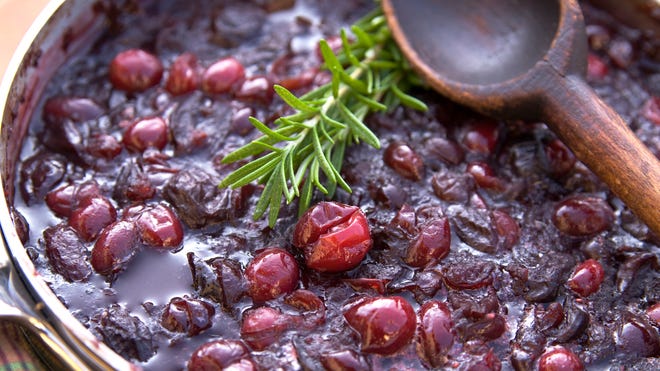Are you team canned or team fresh cranberry sauce?
This Thanksgiving, we’re answering plenty of your burning, commonly-searched food questions. Here, we’re tackling the nutritional facts behind cranberries.
Here’s how certain cranberry dishes may or may not boost your nutrition this holiday season. And remember, one indulgent meal is not going to make or break your health.
“Focus on balance and listening to your body’s hunger and cravings on the holiday,” Washington, D.C.-based dietitian Caroline Thomason, RD, CDCES, tells USA TODAY. “Choose nourishing foods that you enjoy, like vegetables, whole grains and proteins, but also give yourself permission to have your holiday favorites. Slowing down and savoring each bite can also help you tune into the fullness cues that can help prevent overeating too.”
Are cranberries good for you?
The short answer is yes.
“Cranberries are packed with antioxidants, especially vitamin C, and have anti-inflammatory properties,” Thomason says. “They’re also a source of fiber, which can support digestion.”
If you can handle raw cranberries (Thomason notes their “tartness is intense for most people”), they contain slightly more vitamin C than their cooked counterparts. Per the US Department of Agriculture’s Food Database, a cup of raw cranberries contains 14 milligrams of vitamin C. That’s about a sixth of the daily recommended amount for men, and about a fifth of the daily recommended amount for women, according to the Office of Dietary Supplements at the National Institutes of Health.
“However, cooking them also releases some beneficial antioxidants, making both raw and cooked cranberries nutritious choices,” Thomason adds.
Making cranberry sauce for Thanksgiving?We have three recipes you need to see
What are the cons of eating cranberries?
When we’re talking about eating cranberries on Thanksgiving, it’s usually in the context of a cranberry sauce or cranberry-based dessert, which usually contains more than just the cranberries themselves.
“(Cranberries are) very tart on their own, so many cranberry dishes and sauces include added sugar, which can mitigate some of the nutritional benefits,” Thomason notes.
If you’re trying to avoid excess added sugars, she suggests combining cranberries with naturally sweeter fruits such as apples or oranges, or making a salad with cranberries sprinkled in for a “burst of flavor.”
